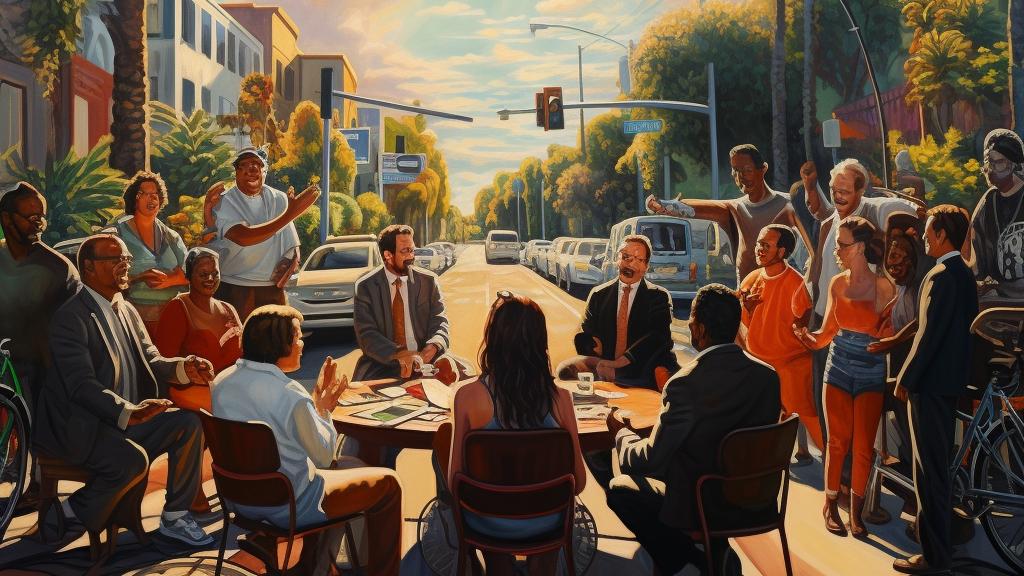
AI-generated image of people sitting around a table in the middle of the street and others standing beside them meant to depict the concept of inclusive transportation decision-making. Credit: Midjourney
A new research agenda developed by UCLA scholars and community members identified more than 50 knowledge gaps impacting the transition to a just and sustainable transportation system in Los Angeles.
The TRACtion Report: A Research Agenda for Just and Sustainable Transportation is organized around community-focused themes and identifies specific questions that can be taken forward by researchers, community partnerships, or transportation agencies and elected officials.
The agenda emerged from the work of TRACtion, or Transformative Research and Collaboration, a UCLA initiative by the Sustainable LA Grand Challenge and the Institute of Transportation Studies.
Launched in January 2023, TRACtion matched UCLA’s academic expertise with the wisdom and perspectives of community groups and advocates. About four dozen researchers and external partners came together to form working groups around topic areas, like phasing out fossil fuels, access to opportunities, reimagining transportation, resilient transportation, and safe and healthy transportation.
The working groups met five times over the course of the project and identified more than 100 ideas on important barriers, gaps and solutions to a just transportation transition in Los Angeles. These were then synthesized into five cross-cutting themes across all groups:
- Decision-making processes
- Institutional effectiveness
- Access and public space
- Determinants of individual behavior
- Environment and health
One of the primary goals of TRACtion was to identify research ideas that originated with community-based thinkers, which could be developed into cross-disciplinary scholarly projects in the future.
Research projects that are pursued and prioritized in the transportation field are usually dictated by university researchers and their funders. However, this can overlook the insights of community groups and advocates with very different perspectives on transportation issues and how they should be addressed.
As an example, the TRACtion community representatives emphasized research topics that are not as prevalent in academic research on transportation, specifically concerning government and stakeholder decision-making. They also placed less emphasis on technical questions and new technologies, both of which are prominent in transportation scholarly research.
The TRACtion research agenda will inform the priorities of UCLA ITS in our attempts to fill knowledge gaps with new research and synthesize findings to inform policymakers. Research has great potential to affect decision-making, and TRACtion serves as a model for integrating community voices into the research development process and aligning academic research more closely with their visions for the future.
The TRACtion report was released March 21 at a downtown Los Angeles event hosted by UCLA ITS.




